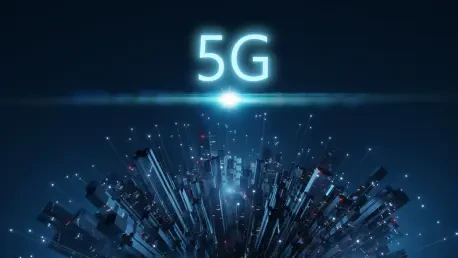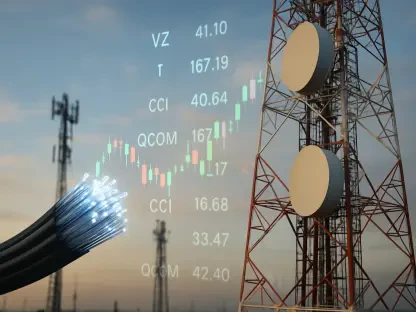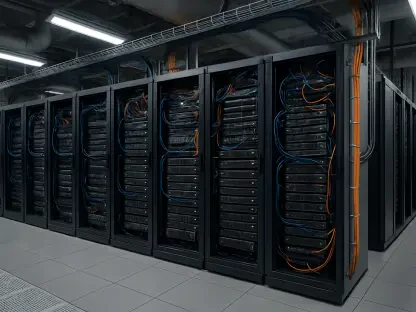Europe stands at the forefront of telecommunications innovation, harnessing cutting-edge technology to transform network capabilities, security, and operational efficiency. This dynamic evolution is characterized by the widespread implementation of technologies like 5G, artificial intelligence (AI), and the Internet of Things (IoT). As global demand for seamless connectivity continues to rise, European tech companies and governments collaborate on initiatives to address digital challenges and seize opportunities. From cross-border military exercises to advanced AI platforms, these strides signify Europe’s commitment to making substantial improvements in telecommunications infrastructure and services.
The Pioneering Role of 5G Technology
5G technology is redefining telecommunications by offering unparalleled speed and connectivity. A landmark achievement is the collaboration between Nokia, Telia, and the Finnish military, which involved successfully executing the world’s first 5G standalone slice handover across nations during a military exercise. This milestone highlights the necessity for uninterrupted and secure data connections for global defense coalitions. As military operations become increasingly reliant on digital tools, seamless connectivity ensures access to mission-critical applications, enhancing operational capabilities. Such 5G advancements demonstrate a commitment to strengthening data security and ensuring rapid communication during defense exercises.
Further underscoring 5G’s impact is its potential to transform other industries beyond defense. In logistics, for instance, this technology can facilitate real-time tracking and monitoring of shipments, boosting efficiency and reducing delays. The healthcare sector stands to benefit from enhanced telemedicine services, allowing remote consultations with minimal latency. By supporting diverse sectors, 5G paves the way for creating innovative applications that enhance everyday lives, from smart city solutions to more efficient energy management systems. Europe’s strategic adoption of 5G sets a precedent for integrating technology into various aspects of society, driving growth and competitiveness in the modern world.
AI and IoT Transformations in Telecom
AI and IoT are revolutionizing telecom by offering smarter solutions for emerging threats and operational challenges. In Belgium, Proximus has launched 365guard, a robust AI-powered platform designed to protect mobile users from growing SMS-related spam and fraud threats. The dynamic detection engine effectively combats evolving regional threats by continuously adapting its strategies. This innovation addresses the rising prevalence of SMS scams, which pose significant risks to developing digital markets. By deploying sophisticated AI technologies, telecom providers are enhancing security measures and fostering user confidence in a digital-first environment.
In the realm of operational efficiency, Telefónica’s partnership with Dexory showcases the convergence of telecom and robotics. Dexory’s autonomous robots, equipped with advanced IoT connectivity, gather real-time inventory data, optimizing warehouse processes. This integration not only improves accuracy and speed but also reduces human error, leading to significant cost savings. The successful implementation of robotics in telecommunications exemplifies the potential of AI and IoT in streamlining operations across industries. As AI technologies become more advanced, their applications in telecom are expected to expand, ushering in an era of smart networks that can intuitively respond to user needs and market demands.
The Drive for Telecom Infrastructure Enhancement
Europe’s commitment to expanding telecom infrastructure reflects its determination to meet growing digital demands. In the UK, Vodafone’s innovative “Network as a Sensor” technology exemplifies how mobile networks can be leveraged for applications beyond traditional communication. By harnessing microwave signals to measure rainfall, Vodafone provides essential data to the River Severn Partnership, supporting flood mitigation efforts. This unique use of telecom infrastructure underscores the potential for networks to serve multiple functions, contributing to environmental and societal goals. Such initiatives demonstrate a proactive approach to utilizing telecom resources for broader benefits.
Another significant endeavor is the completion of a major fiber network project in Cardiff by the UK-based company Elevate. Enhanced by Welsh government investment, this project aims to strengthen local digital infrastructure and support future connectivity needs. As high-speed internet access becomes a necessity in the modern digital age, fiber networks provide a reliable foundation for advanced applications like smart city initiatives and remote work capabilities. These developments exemplify Europe’s strategic focus on telecom infrastructure as a crucial element of modern society, aiming to bridge digital divides and ensure equitable access to technology’s benefits across all communities.
Strategic Policy and Innovation Collaborations
Telecom consolidation and supportive policies have become focal points for driving innovation in Europe’s tech landscape. Connect Europe is actively lobbying for telecom consolidation, aligning with Denmark’s preparations to assume the EU Council presidency. Their advocacy supports pro-innovation policies and the Digital Networks Act, aiming to enhance competitiveness and encourage technological advancements across the continent. Such strategic moves reflect an acknowledgment of the importance of policy frameworks in fostering an environment conducive to innovation and growth.
Partnerships between tech companies and governmental entities play a pivotal role in accelerating progress. Collaborative efforts between companies such as Telefónica and Dexory or Vodafone’s initiatives highlight how collective action can lead to groundbreaking advancements. By working together, these stakeholders can effectively address complex challenges, streamline operations, and drive industry-wide improvements. As tech innovation continues to evolve rapidly, maintaining a strategic focus on collaboration and policy engagement is crucial for sustaining momentum and ensuring Europe’s leadership in the global telecommunications arena.
Preparing for the Future
Europe is leading the way in telecommunications innovation by leveraging advanced technology to enhance network capabilities, security, and operational efficiency. This rapid advancement is marked by the extensive adoption of revolutionary technologies like 5G, artificial intelligence (AI), and the Internet of Things (IoT). With the global demand for seamless and reliable connectivity on the rise, both European tech companies and governments are actively collaborating on strategic initiatives to tackle digital challenges and unlock new opportunities. These collaborations manifest in various forms, from facilitating cross-border military exercises to developing cutting-edge AI platforms. Such efforts reflect Europe’s dedication to achieving significant enhancements in telecommunications infrastructure and service delivery. Europe’s holistic approach not only improves communications within the continent but also positions it as a global leader in pioneering digital transformations, setting a benchmark for other regions striving to meet evolving connectivity needs and expectations.









